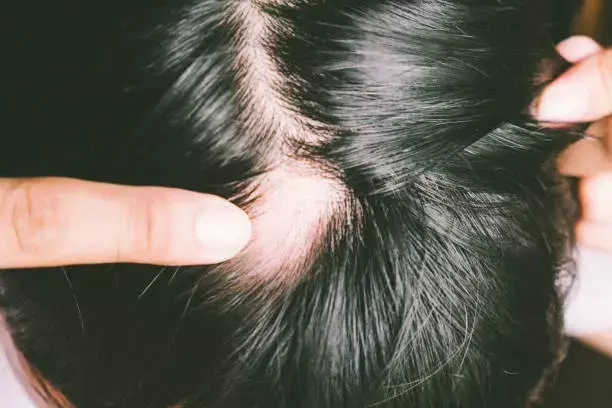- Home
- Medical news & Guidelines
- Anesthesiology
- Cardiology and CTVS
- Critical Care
- Dentistry
- Dermatology
- Diabetes and Endocrinology
- ENT
- Gastroenterology
- Medicine
- Nephrology
- Neurology
- Obstretics-Gynaecology
- Oncology
- Ophthalmology
- Orthopaedics
- Pediatrics-Neonatology
- Psychiatry
- Pulmonology
- Radiology
- Surgery
- Urology
- Laboratory Medicine
- Diet
- Nursing
- Paramedical
- Physiotherapy
- Health news
- Fact Check
- Bone Health Fact Check
- Brain Health Fact Check
- Cancer Related Fact Check
- Child Care Fact Check
- Dental and oral health fact check
- Diabetes and metabolic health fact check
- Diet and Nutrition Fact Check
- Eye and ENT Care Fact Check
- Fitness fact check
- Gut health fact check
- Heart health fact check
- Kidney health fact check
- Medical education fact check
- Men's health fact check
- Respiratory fact check
- Skin and hair care fact check
- Vaccine and Immunization fact check
- Women's health fact check
- AYUSH
- State News
- Andaman and Nicobar Islands
- Andhra Pradesh
- Arunachal Pradesh
- Assam
- Bihar
- Chandigarh
- Chattisgarh
- Dadra and Nagar Haveli
- Daman and Diu
- Delhi
- Goa
- Gujarat
- Haryana
- Himachal Pradesh
- Jammu & Kashmir
- Jharkhand
- Karnataka
- Kerala
- Ladakh
- Lakshadweep
- Madhya Pradesh
- Maharashtra
- Manipur
- Meghalaya
- Mizoram
- Nagaland
- Odisha
- Puducherry
- Punjab
- Rajasthan
- Sikkim
- Tamil Nadu
- Telangana
- Tripura
- Uttar Pradesh
- Uttrakhand
- West Bengal
- Medical Education
- Industry
Alopecia areata tied with increased risk for dementia: Study

Patients with Alopecia areata (AA) have a significantly higher risk of developing dementia, according to a recent study published in the clinical journal of psychiatry.
Alopecia areata (AA) is associated with multiple comorbidities and shares a similar inflammatory signature with dementia. The great negative psychosocial impact of Alopecia areata (AA) may result in poor social engagement, a typical risk factor for dementia. However, little is known about the association between Alopecia areata (AA) and dementia.
Via the Taiwan National Health Insurance Research Database, 2,534 patients with Alopecia areata (AA) (International Classification of Diseases, 9th Revision, Clinical Modification code: 704.01) aged ≥ 45 years and 25,340 controls matched for age, sex, residence, income, dementia-related comorbidities, systemic steroid use, and annual outpatient visit were included between 1998 and 2011 for investigation of subsequent dementia from enrollment to the end of 2013. After controlling for potential confounders, stratified Cox regression analysis on each matched pair was applied to assess the dementia risk between the Alopecia areata (AA) and control groups.
The Results of the study are as follows:
Patients with Alopecia areata (AA) were more likely to develop any dementia, Alzheimer's disease, and unspecified dementia than the control cohort. Stratification analysis by age and sex revealed increased risks of any dementia and unspecified dementia in both age groups (ie, < 65 and ≥ 65 years) and both sex groups and increased risks of AD in male patients and in those with age at dementia onset ≥ 65 years. Sensitivity analyses after exclusion of the first year or first 3 years of observation showed consistent findings.
Thus, the researchers concluded that patients with Alopecia areata (AA) had a higher risk of developing dementia. Further studies are needed to elucidate the underlying pathophysiology between Alopecia areata (AA) and dementia risk.
Reference:
Association of Alopecia Areata and the Risk of Dementia: A Nationwide Cohort Study by Cheng-Yuan Li et al. published in the clinical journal of psychiatry.
Dr. Shravani Dali has completed her BDS from Pravara institute of medical sciences, loni. Following which she extensively worked in the healthcare sector for 2+ years. She has been actively involved in writing blogs in field of health and wellness. Currently she is pursuing her Masters of public health-health administration from Tata institute of social sciences. She can be contacted at editorial@medicaldialogues.in.
Dr Kamal Kant Kohli-MBBS, DTCD- a chest specialist with more than 30 years of practice and a flair for writing clinical articles, Dr Kamal Kant Kohli joined Medical Dialogues as a Chief Editor of Medical News. Besides writing articles, as an editor, he proofreads and verifies all the medical content published on Medical Dialogues including those coming from journals, studies,medical conferences,guidelines etc. Email: drkohli@medicaldialogues.in. Contact no. 011-43720751


